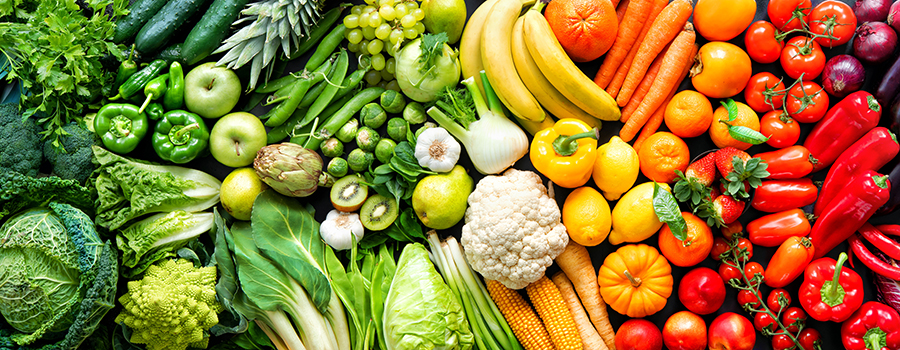 Kidneys are small organs located underneath the rib cage, on each side of the spine. They are responsible for filtering waste out of the blood and excreting it out of the body through urine. Kidneys also balance the body’s fluid and electrolyte levels and play a significant role in overall health
Kidneys are small organs located underneath the rib cage, on each side of the spine. They are responsible for filtering waste out of the blood and excreting it out of the body through urine. Kidneys also balance the body’s fluid and electrolyte levels and play a significant role in overall health
Diabetes increases a person’s blood glucose, or blood sugar, to dangerously high levels. Over time, this can damage the kidneys. If they are damaged, kidneys cannot clean blood effectively and waste and fluids build up in the bloodstream. If the damage continues, kidneys can fail. In fact, diabetes is the most common cause of kidney failure in the United States.
Eating foods rich in certain vitamins and nutrients may help the kidneys function properly and prevent damage to them. However, some foods that generally help support healthy kidneys may not be suitable for people who have an existing kidney disease. Check with your doctor or dietitian if you have an existing condition to find out which foods are best for you.
Dark leafy greens
Dark leafy green vegetables such as kale, spinach, chard, and collard greens are loaded with vitamins A and C, calcium, and many other important minerals. Kale also is a significant source of carotenoids, flavonoids, and vitamin K. Spinach is high in vitamins A, C, K, and folate. The beta-carotene found in spinach is important for boosting your immune system and a good source of magnesium. Try replacing that nutritionally challenged iceberg lettuce with some dark leafy greens.
Berries
Blackberries, strawberries, blueberries, and raspberries are all full of fiber plus many helpful nutrients and antioxidant compounds. Berries are excellent sources of manganese, vitamin C, fiber, and folate. Strawberries are rich in two types of phenols: anthocyanins and ellagitannins. Anthocyanins give strawberries their red color and are powerful antioxidants that help protect body cell structures and prevent oxidative damage. These components are known to be anti-cancer and anti-inflammatory. Raspberries contain a phytonutrient called ellagic acid, which helps neutralize free radicals in the body, preventing cell damage. Antioxidants in blueberries and other berries have been shown to have properties that inhibit cancer cell growth and tumor formation.
Cranberries
Most of us have heard the advice to drink cranberry juice to protect against bladder infections. The tart little berries indeed prevent bacteria from sticking to the bladder wall. By preventing bladder infections, cranberries also prevent bacteria from traveling up into the kidneys. Cranberries have also been shown to protect against cancer and heart disease. Cranberry juice and cranberry sauce are common foods, but adding dried cranberries to your salad or vegetable dish is an excellent way to increase your intake.
Sweet potatoes
Sweet potatoes are packed with fiber, beta-carotene, and numerous other vitamins and minerals that support the kidneys. They also are high in potassium. Eating potassium-rich foods may help balance sodium levels in the body, reducing strain on the kidneys. Try replacing white potatoes with sweet potatoes when mashing and making french fries.
Olive oil
Olive oil is rich in polyphenols and antioxidant compounds that prevent inflammation and oxidation. Oleic acid is a compound in olive oil that has been found to reduce inflammation. The monounsaturated fat in olive oil also protects cells against oxidation. Make sure to buy extra virgin olive oil because it has the highest amount of antioxidants. Also, look for dark glass bottles or tins, which prevent oil from oxidizing and going rancid.
Fatty fish
Omega-3 fatty acids have to come from the diet because the body cannot manufacture them. Fish like salmon, tuna, and other cold-water, oily fish are a great natural source of these healthful fats. Other healthy fish choices include mackerel, albacore tuna, herring, and sardines. According to the National Kidney Foundation, omega-3 fats may reduce unhealthy fat levels in the blood and slightly lower blood pressure. Since high blood pressure is a risk factor for kidney disease, natural ways that lower it may help protect the kidneys.
Cabbage
Cruciferous vegetables like cabbage are packed full of phytochemicals. These are compounds in fruits and vegetables that break up free radicals before they can do any damage. Many phytochemicals are also known to protect against and fight cancer. High in vitamin K, vitamin C, and fiber, cabbage is also a good source of vitamin B6 and folic acid, all of which help protect the kidneys from possible damage.